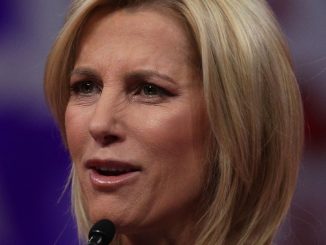
Even though TV’s most famous doctor was earning $700,000 per episode in the final season, *House* star Hugh Laurie said he still feels like a fraud.
Laurie regrets playing a “fake version” of a doctor instead of becoming a real one, as his father had hoped. He admitted that his “dad would have hated” the easier path he chose by becoming an actor.
Keep reading to find out why Laurie chose acting over medicine.
Dr. William (Ran) Laurie, Hugh’s father, had big dreams for his youngest son, born in June 1959.
Hugh Laurie was on track to follow in his father’s footsteps. His father was not only a respected physician but also a 1948 Olympic gold medalist in rowing and a graduate of a Cambridge college.
When British-born Hugh Laurie was studying at the same college as his father, he was also a member of the rowing team, with plans to train for the Olympics and then go to medical school.
However, Laurie discovered a drama club, the Cambridge Footlights, a sketch comedy group. There, he met actress Emma Thompson (*The Remains of the Day*) and his future comedy partner, Stephen Fry, who later co-starred with him in the 1997 film *Wilde*.
Laurie’s path changed completely.
Throughout the 1980s and 1990s, the now 64-year-old actor appeared in several TV shows, including the BBC sitcom *Blackadder*, where he co-starred with Fry.
Hugh Laurie also appeared in the 1995 film *Sense and Sensibility* with Emma Thompson, with whom he had once been in a relationship. He starred in Disney’s live-action *101 Dalmatians* (1996) and even made a guest appearance on *Friends*.
In 2004, Laurie was offered the chance to play a doctor in a new TV series called *House*, a medical drama that ran for eight seasons.
In his Golden Globe-winning role as Dr. Gregory House, Laurie dropped his British accent and perfectly played the narcissistic genius who led a teaching hospital in New Jersey.
During the show’s run, Laurie became Hollywood’s most popular doctor, gaining a huge global fan base. However, life as a celebrity also brought its own challenges.
“I had some pretty bleak times, dark days when it felt like there was no way out,” Hugh Laurie said in a 2013 interview with *Radio Times* (via *Daily Mail*). “I have a strong work ethic, so I was determined never to be late or miss a single day of filming. You wouldn’t catch me calling in sick, saying, ‘I think I’m getting the flu.’ But there were times when I’d think, ‘If I had a little accident on the way to the studio and got a couple of days off to recover, that would be great.’”
Those days off didn’t come until 2012, with the final season of *House*.
After that, Laurie kept busy, appearing in TV shows like *Veep* and the 2015 science fiction film *Tomorrowland*, which starred another famous TV doctor, George Clooney.
In 2016, Hugh Laurie took on another doctor role, this time as neuropsychiatrist Dr. Eldon Chance in the TV series *Chance*.
The *Maybe Baby* star explained to the *Los Angeles Daily News*, “As a gambler, my instinct is to walk away after even a modest win… Yet I was drawn back to this wonderful project that was simply irresistible.” Comparing *House* to his role in *Chance* (which was canceled after two seasons in 2017), Laurie said, “The characters are very different. Their medical practices and attitudes toward life are completely different.”
Despite his Hollywood fame, Laurie, who also starred in 2018’s *Holmes & Watson*, still feels he let his father down by not becoming a real doctor. His father, who passed away from Parkinson’s disease in 1998, had been a respected physician.
“My father was a real doctor. If it’s true that many men try to become versions of their father and fail, it seemed fitting that I ended up being a fake version of a doctor,” said Laurie, who also played a doctor in the 2005 film *The Big Empty*.
“My father had high hopes for me to follow him into medicine,” Hugh Laurie said. “I would have liked to become a doctor myself, and I still have dreams about being one. We live in a world of shortcuts, don’t we? And I took those shortcuts. Dad would have hated that.”
Laurie calls himself a “cop-out,” adding, “Honestly, this causes me a lot of guilt.”
What do you think about Hugh Laurie’s surprising confession? Please share your thoughts in the comments below and share this story so we can hear what others think!
Netflix has canceled the show KAOS after just one season, so there won’t be a Season 2.

This summer, Netflix UK released a big show, KAOS, which is a modern take on Greek mythology, with Jeff Goldblum leading the cast. Fans were wondering if there would be a second season, but sadly, the show has been canceled after just one season. This news came from an Instagram post by one of the stars, which was later deleted.
Netflix has been clever recently with naming first seasons, not including season numbers, but KAOS was definitely meant to have more than one season. If you’ve watched episode 8, you probably noticed how it was setting up for future seasons. However, the show has ended.

Officially, KAOS has been canceled.
As of October 7th, it’s confirmed that Netflix won’t continue the show. The news came from one of the stars, Aurora Perrineau, who shared it on Instagram, but the post has since been deleted.
“Well, this one really hurts.
It’s hard to explain how I’m feeling, but I’ll give it a try.
When I started auditioning for this show, I knew it was special. Charlie Covell’s scripts connected with me in a way most things didn’t. I felt like I knew all of these characters, and I loved every part of them—their flaws and everything.
For one of the first times in my life, I’m really proud. I’m proud of everyone’s hard work and dedication to the project. They gave it their all. But I’m also proud of myself, which is something I’ve struggled with.
When I got cast, I was shocked that someone actually saw me. As a minority and a survivor of sexual assault, I couldn’t believe someone thought I could be one of the lead characters. I had my own storyline, my own goals, and was seen as desirable, even having two love interests. I was worthy of that? This whole experience really changed how I see myself.”
The show’s cancellation wasn’t officially announced, but when a fan asked the actress if the show had ended, she replied, “Sadly, yes.” (Thanks to kitsch-zip for the info.)
The creator of KAOS, Charlie Covell, mentioned that she would love to do more seasons in the future. In an interview with Cosmopolitan, she said, “Anything is possible,” and shared that her original plan was to have three seasons. She has many ideas for where the show could go.
Covell also said that even if the show doesn’t get renewed, season one can still be enjoyed on its own. She explained that she didn’t want the season to end with a big cliffhanger and hopes viewers find it satisfying. However, she would love to work with the same actors and team again, calling the experience a dream come true.
why was KAOS canceled?
When it comes to renewing a show, viewership is the most important factor. No amount of marketing can make people start watching or keep them watching until the end. That’s how we’ve been able to predict some major cancelations before, and based on early numbers, things aren’t looking great for KAOS.
Looking at Netflix’s global weekly top 10, KAOS was in the top 10 for the first four weeks it was eligible, with 98.9 million hours watched, which equals about 14.9 million views.
In week four, Netflix changed KAOS from being called KAOS: Season 1 to KAOS: N/A, which suggests it’s now considered a limited series.
Comparing its performance in week three with other Netflix shows that debuted in 2024, KAOS is falling behind some of the biggest-budget shows in the charts by week three.

Let’s compare how KAOS performed week-to-week with some shows that have been renewed, like Supacell, The Gentlemen, and My Life with the Walter Boys, and others that got canceled, like Dead Boy Detectives and Obliterated. So far, KAOS is falling behind compared to these shows.

In the final episode of season 1 of KAOS, things are shifting against Zeus, who seems to be losing his power. His vision of himself bleeding comes true, and a water feature symbolizing his strength collapses.
Here’s a quick recap of where the key characters are: Prometheus is no longer under Zeus’s control and now sits on the throne in Olympus. Riddy, who spent much of the season in the Underworld, has returned to Earth and met Cassandra, who tells her she’s now a prophet and needs to go to Ari to “set the living free.”
Meanwhile, in the Underworld, Caeneus is given the power to renew souls, surprising Hades. He’s also tasked with setting the dead free.
Ari, having fulfilled her father’s prophecy, is now in charge of Krete. She tells her mother she won’t rule for the Gods. Instead, she strikes a deal with the Trojans to rebuild Troy and destroy Olympus. The season wraps up with Dionysus outside the palace, and Hera making a call to gather troops and prepare for battle.

What happens next is only known by Atropos, Lachesis, and Clotho. But it looks like there will be more efforts against Zeus, as Olympus is becoming more unstable. Since Zeus is weakened, Hades will likely lose control of the Underworld, which he warned about earlier in the season. If that happens, everything could fall apart.



Leave a Reply